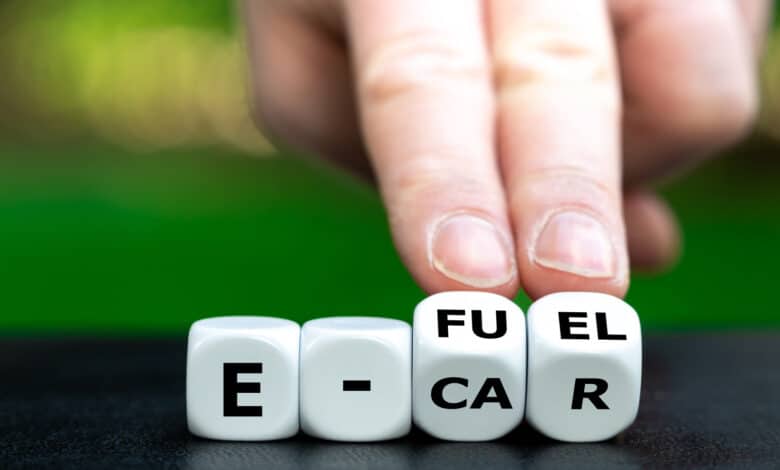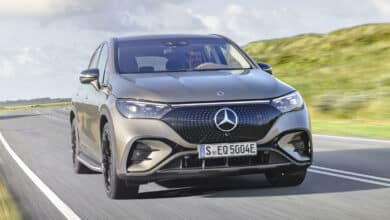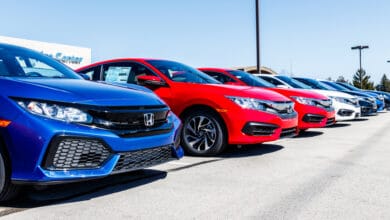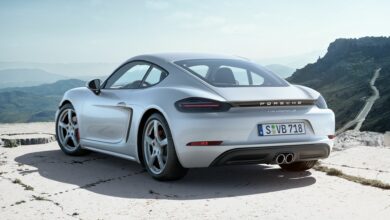
It’s been decided: From 2035, no cars powered by gasoline or diesel will be allowed to be newly registered. For so-called e-fuels, on the other hand, the situation will be different.
Combustion engine phase-out from 2035 – at least in part
One thing should be said in advance. Strictly speaking, we cannot talk about a real end to combustion from 2035. If you take a closer look at the regulations on which the EU member states have now agreed, it is a question of an end to fossil fuels. Synthetically produced fuels (e-fuels), on the other hand, will continue to be able to be used in conventional cars. This means that, at least in theory, it will be possible to buy new cars with internal combustion engines beyond 2035. The decision in favor of a general phase-out of internal combustion engines without exemptions for e-fuels was actually supposed to have been made a few weeks ago. But the German government, and in particular the Ministry of Transport led by Federal Transport Minister Volker Wissing (FDP), blocked the vote.
In view of the fact that the EU Parliament already agreed on the end of combustion engines in June 2022, Germany has taken an inglorious role in this case. Even a suitable regulation was already made out in the fall of 2022. Shortly before scarcely the FDP placed itself now however crosswise and would like to show itself technology open. Whether this is really purposeful or is simply intended to save the party from further disgraceful election results, it is more than questionable. After all, not only environmentalists but also leading automakers agree on the issue. E-fuels are unlikely to play any role at all in 2035. A few days ago, by the way, the traffic light coalition launched a sales permit for e-fuels at gas stations.
E-fuels as a questionable alternative to electromobility
But then you have to hand it to synthetic fuels – they produce no CO² and are therefore climate neutral. In the course of this, they should at least slow down climate pollution a little. However, it’s important to read the fine print when it comes to e-fuels. The climate-neutral fuel is produced from water and carbon dioxide. However, this requires significantly more electricity than is the case when simply charging an electric car. Cars powered by e-fuels consume five to six times as much electricity over the same distance as a comparable electric car. Consequently, this is simply a waste of electricity. And this is needed elsewhere in the course of the energy transition.
If Federal Economics Minister Robert Habeck (Greens) and Federal Construction Minister Clara Geywitz (SPD) have their way, only heating systems that use at least 65 percent renewable energies will soon be installed. Put simply, households are to rely primarily on climate-neutral heat pump technology in the future. And this requires electricity. Further criticism comes from the shipping and aviation industries. These are the sectors for which e-fuels could lead the way. After all, it would be possible to fly or go on a cruise without leaving an ecological footprint. However, should passenger cars also rely on the synthetic fuels, a shortage looms.
Will e-fuels be phased out?
However, the FDP should not rejoice too soon over its victory. After all, it is not yet set in stone that there will even be any internal combustion vehicles that could be registered after 2035. Since e-fuels incur such high energy costs, prices at the pump will probably also be significantly higher than is currently the case for gasoline and diesel. Ultimately, it will probably not be politics that decides on the existence of the combustion engine. Rather, the market will regulate this over time. In the meantime, even traditional manufacturers like BMW, Mercedes and VW are betting on an all-electric future. It is more than questionable whether a combustion engine will still be part of their portfolio in more than ten years. On top of that, the EU member states and the parliament have a two-month veto right once the e-fuels regulation is included in the regulation. Within this period, they can still stop the exemption for e-fuels.



